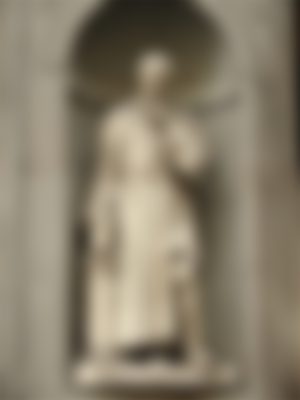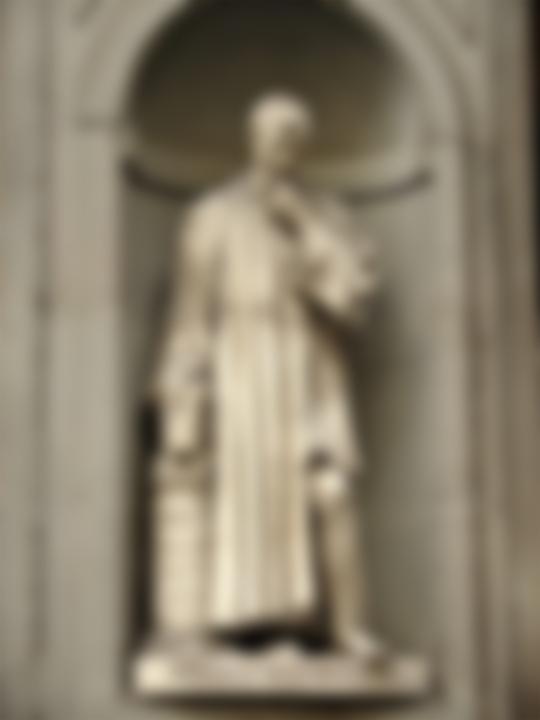Machiavelli is the founder of modern political science. He determines the field of this science, distinguishing it from that of other disciplines that are equally concerned with man's actions: such as ethics. Machiavelli vigorously claims the autonomy of political action as well as of his specific laws. Political action must be studied based on the work of a "prince", assessing only whether the "prince" has been able to achieve the objectives that must be proper to politics: that is, to strengthen and maintain the State, guaranteeing the good of the citizens. Any other criterion, whether the sovereign has been just, meek, violent, cruel, faithful or has broken his word, is not relevant to the political evaluation of his actions.
The thought of Niccolò Machiavelli is fundamental in studies of political and legal organisation. His thought, which was considered original at the time, led him to keep politics, morality and religion separate. Politics must adhere to the actual truth, that is, to situations as they are in reality and not as one would like them to be. Politics must emancipate itself from religion and morality. Politicians must act in complete freedom without any scruples about breaking moral or religious laws if the welfare of the state so requires.

[Immagine CC0 creative commons](https://pixabay.com/it/photos/niccol%C3%B2-macchiavelli-florence-165412/)
Machiavelli placed at the centre of his thinking the idea that politics should not follow utopian designs or moral and religious precepts that have no chance of being implemented. Politics, on the contrary, has a very high but earthly task: to give men institutions to guarantee them a civil order. Those who conquer power and exercise it, whether in a republic or a principality, to maintain it, must, first of all, take into account what has always been human nature, which is primarily driven by the pursuit of the concrete interests of individuals and groups. The wise politician knows that men in themselves are neither good nor bad, but that to follow their advantage they do not hesitate to be 'guilty'. It is up to the laws to make it possible and improve co-existence between them. Hence the fact that politics must be based on a sense of reality and pursue goals that fall within the sphere of possibility.
As for Machiavelli's thinking on institutions, Machiavelli was ahead of the logic of his time. At the "fiefdom" Machiavelli replaced the State. The State is broader and more modern. Power must be secular and not religious. Any State, which wants to act according to the logic of the Florentine writer, could not subordinate its actions to ecclesiastical authorities. Machiavelli, therefore, lays the first seeds concerning the idea that it is the Church that should be subordinate to the State, not vice versa. The form of government that best sums up Machiavelli's idea of the State in itself is the republican form of government, which stems and regulates the anarchist forces of man.

[Immagine CC0 creative commons](https://pixabay.com/it/photos/italia-florence-chiesa-tuscany-4256018/)
The principality is for Machiavelli a form of exception and transitory, indispensable only at certain times, such as the one Italy is experiencing in its times, to build a sufficiently solid state. The republican form is the best because there is not a single man in power, but it has stable and lasting institutions. Machiavelli says that by studying human behaviour through historical sources or direct experience, it is possible to formulate laws of universal validity. From this naturalistic vision comes Machiavelli's confidence in a rational theory of political action, which knows how to identify the laws to which political facts necessarily respond and therefore knows how to suggest safe lines of conduct. The starting point for the formulation of such laws is a cruelly pessimistic vision of man as a moral being: the man in Machiavelli's eyes is evil. Machiavelli does not investigate whether he is evil by nature or as a consequence of a sin committed, but merely empirically ascertains the effects of his wickedness on reality. Men are ungrateful and forget more easily the killing of their father than the loss of their wealth.
The prince must not and cannot always be kind, but he must also know how to be evil to defend his state. The real politician in Machiavelli's eyes must be a centaur, i.e. a being half man and half animal, he must be both human and fierce as a beast depending on the situation. Machiavelli knows that not keeping his word or ruthlessly killing enemies for a prince is morally unacceptable behaviour. However, if the prince is ethically evil, he becomes good in politics because he can also kill to defend the state and its institutions; In the same way, the "good" morally would be "bad" politically because not killing and not doing evil deeds would leave the state to perish.
Greetings from kokr75!

